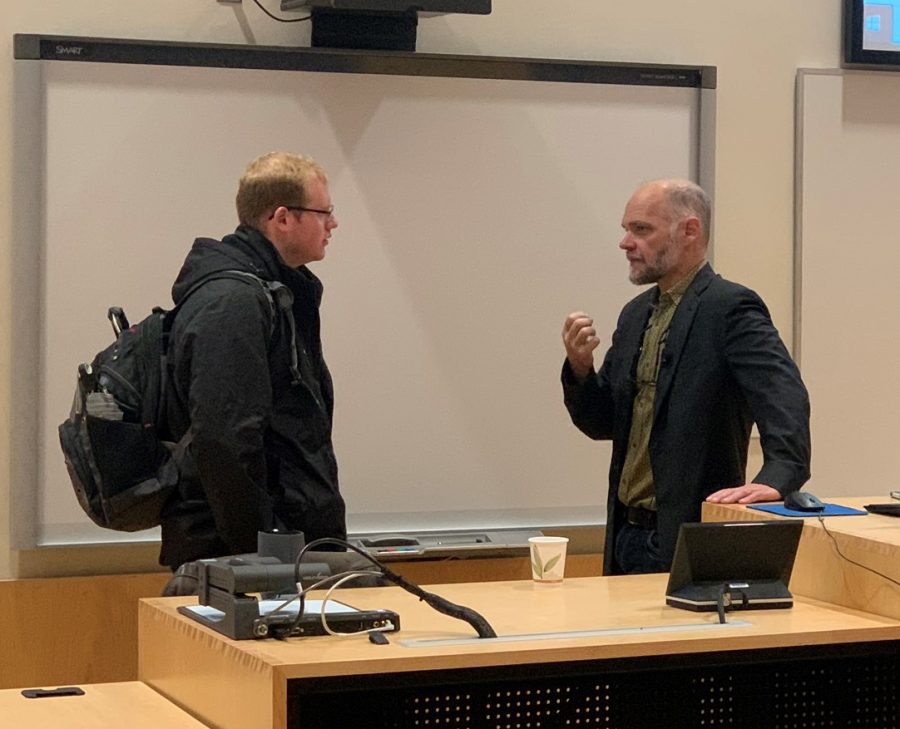Speaker discusses the death of nature
Doctor Sean McGrath on the birth of an ecological civilization
“The civilization of the near future will be ecological, or it will not be,” philosophy professor from Memorial University of Newfoundland, Canada and Co-Founder of FANE (For A New Earth) Dr. Sean McGrath said.
Thus, McGrath concluded his talk, “The Death of Nature and Birth of Ecological Civilization,” given last Wednesday to an audience of over 140 students and faculty in Doudna Hall.
McGrath framed his talk by looking at several philosophers such as Slavov Zizek and Yuval Noah Harari who have already made lengthy arguments about how advanced technology might affect what it means to be human. He then argued that because of three major reasons—climate change, genetic engineering, and AI technology, particularly the ability of machines to make decisions faster and design other machines better than humans may soon be able to—we likely face two possibilities.
“Either we are the ‘primitives’ at the dawn of a new civilization,” McGrath said, “or we simply won’t survive.” In a very real sense, he felt we might be “the last generation” of humans, or at least the type of the humans we currently are. He used our concept of “nature” and what that concept was meant symbolically to both science and religion to argue his point.
McGrath emphasized the responsibility of the human race as instrumental to the future of the planet. One way that humans differ from other life forms on earth is that it’s pretty clear we are the ones who need to solve the current challenges of technology.
“It isn’t going to be the polar bears, it’s not going to be the frogs, it’s us. We are responsible,” he said. “We have one thing in common: we come from the same place, Earth. We depend upon this place for our very existence.”
For this reason he said, “nature,” as a loving symbol, might be something that a new civilization could embrace and rally around.
Philosophy professor Michael Sharkey pointed out that McGrath’s book, “Thinking Nature,” was “an original intervention into eco-criticism.”
“By tracking the history of the concept of nature from the Hebrew
Bible through Renaissance philosophy and science, McGrath makes a compelling case for a new anthropogenic humanism, a humanism that is not at the expense of nature, and a naturalism that is not at the expense of the human,” said Sharkey.
“The way he approached the problem of climate change and technological progress was refreshing and interesting, mainly because he focused on the philosophical fallout rather than the physical. He did a fantastic job of underscoring the reality that the problems we face have mechanical solutions but we as people need to find the metaphysical underpinning to carry out those solutions,” Rob Hackett, one of the many students attending, said.




